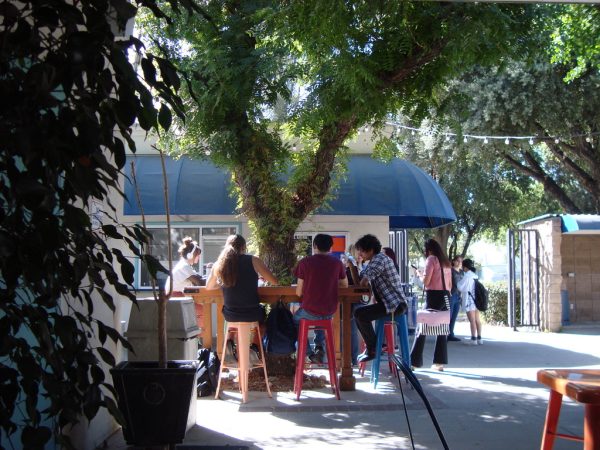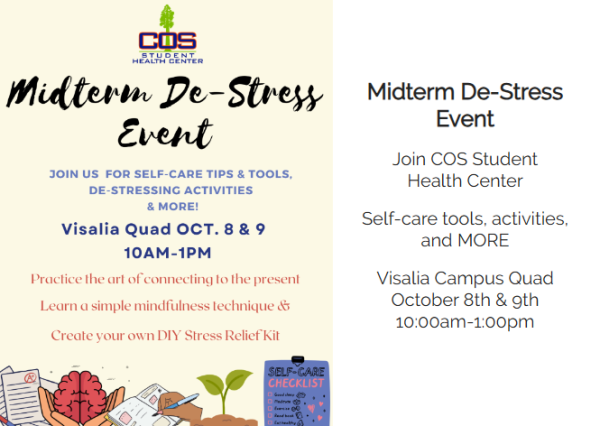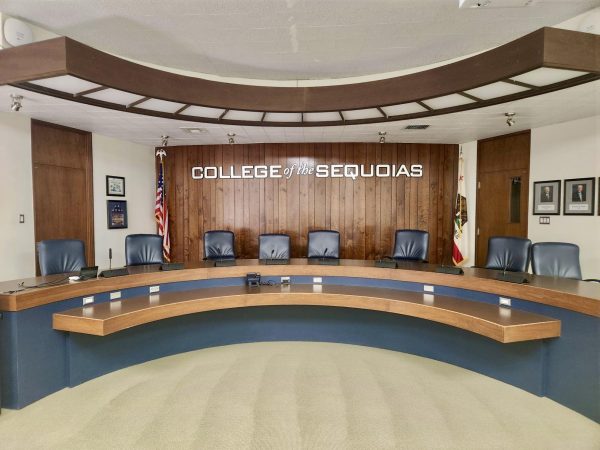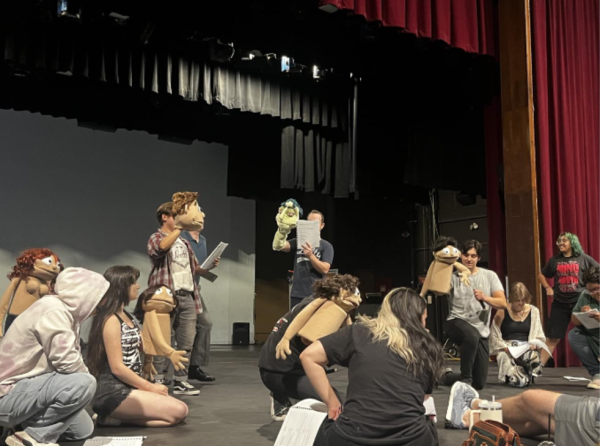Abortion Rights Nation, State, and Citywide
“Our daughters, sisters, mothers, and grandmothers will not be silenced. The world is about to hear their fury. California will not sit back. We are going to fight like hell,” read California Governor Gavin Newsom’s tweet on Monday night, posted after Politico released this leaked majority draft opinion wherein Justice Samuel Alito writes that the Supreme Court will vote to overturn the landmark 1973 Roe v. Wade (Roe) ruling that established a constitutional right to abortion.
For more on what this draft entails, read “Supreme Court May Vote to Overturn Roe V. Wade” from The Campus’ multimedia editor, Ashley Cortez.
The court confirmed that the leak is authentic, but ultimately the document leaked is not a final opinion. Roe has not yet been overturned and Justices’ decisions could be changed before June, when the final court ruling is set to be made.
Abortion Rights Nationwide
Nationwide, bills have been or may be introduced in as many as 28 states to partially or completely restrict abortion access. 13 of these states have trigger laws that say they will ban abortion as soon as the Supreme Court allows it. For some of these states, bans will take effect immediately. Others may take effect weeks after Roe is struck down.
Five states – Michigan, Wisconsin, West Virginia, Arizona, and Alabama – have abortion laws that were written before Roe, and invalidated by the Roe ruling. These laws could be enacted once again if Roe is struck down, but it is unclear if they all will be. Alabama and Arizona may seek longer and more severe abortion bans, but Michigan and Wisconsin have Democratic governors who have previously vetoed anti-abortion bills.
Laws introducing complete bans on abortion have previously been blocked, ruled unconstitutional for violating the federal right to abortion determined by Roe. Even with various abortion restrictions enacted in states around the nation, abortion has remained legal in every state for decades. The stakes are significantly higher now, with Roe potentially being overturned.
If Roe is overturned as the draft ruling says it will be, states will be allowed to declare abortion completely illegal within their borders. Some states may also attempt to ban their residents from traveling to other states to receive abortion services.
This ruling has the potential to affect more than just rights to abortion access. If the Supreme Court is willing to overturn set precedents, other cases like Obergefell v. Hodges allowing same-sex couples to marry or Loving v. Virginia allowing interracial marriages could potentially be overturned in the future as well.
Abortion Rights in California
If Roe is overturned, the fate of abortion access will be decided on a state by state basis. Democrat-led states will likely continue to keep abortion accessible for their residents.
In recent months politicians in California have been working to expand abortion protections, with Governor Newsom wanting California to become a sanctuary for anyone seeking abortion-related services.
If abortion access is banned in over half of the states in the nation, California will become the nearest abortion proving state for 1.4 million women according to estimates from the Guttmacher Institute. This is a nearly 3,000% increase from the current levels of women seeking out-of-state services in California.
On January 20, the California Legislative Women’s Caucus announced a united effort to make the state a “national beacon for reproductive freedom” by proposing laws that will strengthen and expand abortion access in California.
One such piece of legislation, SB 245, was signed by Newsom on March 22, eliminating out-of-pocket costs for abortion services. Also known as the Abortion Accessibility Act, SB 245 will require health insurance plans to cover abortion services without imposing any cost-sharing requirements for patients.
The state is currently examing ways to enact civil liberty protections for abortion providers, fund private and public sources to support the needs of patients, and protect people from persecution due to losing a pregnancy.
Abortion Rights in Tulare County
Although abortion in California is protected by state laws, factors such as stigma, religious views, and lack of transportation may make it difficult for Tulare County residents to access abortion services.
“It would be terrible to overturn Roe for so many reasons… but to connect it back to the Central Valley, that is kind of our reality,” began Karina Gallardo-Montoya, a Planned Parenthood Mar Monte community advocate.
“In rural places in California, we don’t have access to [abortion] or the access that we have is super limited and thus abortion is not accessible.”
Planned Parenthood has operated in Visalia for two decades now, with the nonprofit first beginning its work on the COS Visalia campus in 2002. For the most part, Planned Parenthood has operated here receiving relatively little attention.
That changed when the Planned Parenthood Visalia Health Center attempted to move to a larger facility that would allow more services to be offered, both community support and protest being directed toward the organization.
With the need for services expanding in the years that Planned Parenthood has operated in Visalia, the clinic no longer has enough space to provide all of the care that community members need. The clinic is currently only open three days a week, with limited hours on those days.
Although this center offers services such as checkups for sexual health problems, birth control, gender-affirming hormone therapy, and STD testing, the center does not offer abortion services. There are no healthcare providers offering abortion services in Tulare County, meaning residents must travel to Fresno or Kern counties to access abortion care.
Tulare County has some of the highest rates of teen pregnancy and sexually transmitted diseases in the state. It is organizations like Planned Parenthood that help provide reproductive health education and services that help lower these rates.
In an attempt to meet the needs of the community, Planned Parenthood decided a larger Visalia clinic was necessary.
This new clinic would have been more than double the size of the current one, allowing Planned Parenthood to offer more services in Visalia and see an increase in patients. Among these newly offered services would have been primary and pediatric care, although it would still not provide abortions on-site. In addition to that, this location would be highly visible and potentially more accessible for community members.
In December, city planning commissioners approved the conditional use permit for a new health center location over objections from David Paynter. Paynter, a local developer, appealed this decision, claiming that Planned Parenthood’s presence at that location would disrupt parking and shoppers at neighboring retail stores.
A public hearing was called to determine the fate of the clinic, before being postponed multiple times. On Monday, March 7, a public hearing was rescheduled. That same day, the issue was continued indefinitely when Orosco Group, the project’s developer, pulled out of the project due to the growing controversy.
Even with the hearing being removed from the meeting agenda, more than 100 people attended the meeting to voice their support or opposition to the City Council.
Although the developer has withdrawn from the project, Planned Parenthood is continuing their efforts to move their Visalia clinic to a new location.
“Now, we’re back at the drawing board. We’ve got to be really strategic about where we want to place our new facility,” Gallardo-Montoya said. ”We are going to work with City Council. They have agreed to work with us as well, and we’re going to hold them accountable to that.”
The opposition that the Visalia Health Center faced when trying to acquire a new facility may be a reflection of the uptick in national anti-abortion legislation.
Regardless, Gallardo-Montoya says, the Visalia clinic will not stop its mission of providing healthcare to community members in Tulare County.
“We’re already in an area where access isn’t 100%. Statewide, we’re really trying to advocate for policies that will support abortion access in rural areas like Tulare County.”
One way that Planned Parenthood is advocating for these policies is through community organization.
“We had COS students and faculty show up for us at the meeting. This is a clear indication to us that there are people who want to see these resources on their campus too,” Gallardo-Montoya said.
That’s why students at COS are now in the process of creating a Gen Action Club with Planned Parenthood Mar Monte on the Visalia campus. These clubs are a place where students are able to feel supported as they organize and advocate for reproductive rights.
The first meeting will take place on Friday, May 6 at 1:00 p.m. in the Giant Forest Building upstairs. This meeting will be co-hosted by the COS Young Dems Club, who are supporting the COS Gen Action Club while it is developing.
At this meeting, students can expect to do initial introductions, discuss what a Gen Action Club is, and begin planning the process of becoming an official COS club.








